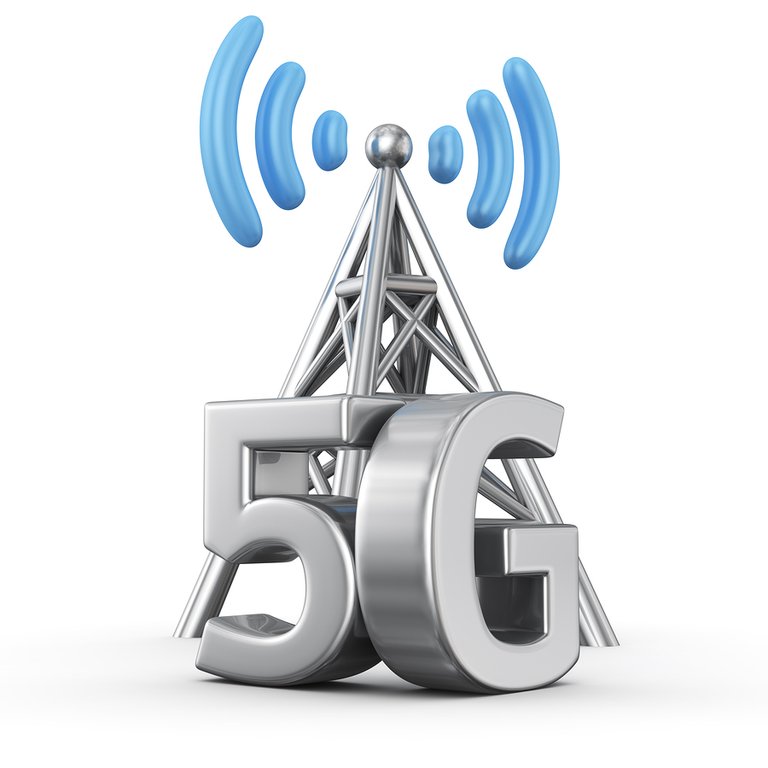When telecommunication companies have not yet completed the deployment of 4G across the territory, it is difficult to imagine that our mobile phones will soon be operating faster and more efficiently thanks to 5G, the fifth generation of mobile telephony. The race to be the pioneers in using this technology, which, for the first time, will not only revolutionize communications but also the technological environment as a whole and the production systems, has been unleashed all over the world. EU countries, will not be in the leading squad, which will occupy the Asian countries and the United States. Not only will 5G change the daily lives of millions of users, but it will have economic implications for companies that are still difficult to assess.

This is an approximation of what 5G is, its current state of development and its economic consequences
What is 5G?
The 5G or fifth generation is the new wireless broadband standard that will provide higher speeds, coverage and performance than the current LTE-4G.
How fast will the 5G reach?
5G connections will be 100 times faster (although lab speeds have been reached 250 times), with average speeds of 20 Gbps. That means that data downloads will even exceed those of today's fixed fibre-optic networks. For example, a 1GB movie can be downloaded in less than ten seconds.
What is latency and why is it fundamental?
More than the speed of ascent or descent, the main improvement introduced by 5G is the reduction of latency. Latency is the response time it takes a device to execute a command since the signal is sent. The lower the speed, the faster the reaction of the remote-controlled device, whether it is a stand-alone driving car or a videoconference. The 5G reduces that delay to one millisecond, from more than 10 of the 4G.
Why is 5G important for the Internet of Things?
By reducing latency, the so-called Internet of Things (IoT) can be developed. A world in which not only mobile phones and computers are connected, but also cars, appliances or wearable ones. Currently, there are 7 billion devices connected to the Internet. When the IoT becomes widespread, up to 100 billion devices are expected to be connected by 2025, according to Huawei.
And autonomous driving?
If 5G is fundamental for something, it is for the safe operation of stand-alone cars, because they will need to process several terabytes of data per car per day. A series of sensors (cameras, lidar systems and radars) permanently receive information about the environment surrounding the vehicle, and must process and act in a matter of milliseconds, from dodging a person crossing the vehicle, to recognizing a stop sign or traffic light.
What other advantages does 5G have over the current network?
The 5G allows for greater efficiency in the use of the frequency band and a 100-fold increase in the number of connected devices. It also reduces 90% of the power consumption of the network, and allows machine batteries such as alarms or sensors to last up to 10 years.
Which are the most advanced countries?
In general, the most advanced countries in Asia, such as South Korea, Japan and Singapore, and the United States are far ahead of Europeans. The Korean operator KT Telecom expects to launch the world's first 5G commercial offer in 2018, after testing it at the Pyeongchang Winter Olympics. The U. S. -based AT&T and Verizon will pilot pre-commercial pilot tests at the end of 2018, and Japanese NTTs DoCoMo and KDD also expect to use Tokyo's JJ OO in 2020 as a launching pad. A report by Juniper Research consulting firm estimates that the number of 5G connections will reach 1 billion by 2025, of which one-third will be in the United States, and 55% in China and Japan.
Which productive sectors will advance the most?
5G will be a key technology in industrial digitization by generating and promoting cases of use such as robotic and intelligent manufacturing, immersive gaming and entertainment, autonomous driving, remote surgery, ultra high definition video (UHD), industrial process automation, according to Ericsson and Huawei, leading designers of 5G networks.
What impact will it have on wealth and employment?
The European Commission estimates that the deployment of 5G will mean an investment of 56 billion euros in 2020, which will have an impact on wealth creation of 141 billion and the creation of 2.3 million jobs. In the United States, deploying 5G in smart cities could create up to 3 million jobs and increase GDP by $500 billion. The most active sectors in the adoption of 5G for digitisation will be energy (utilities), manufacturing, public safety and health.
5G is a important moment, it ont only means faster speed for network, even faster for human progress.